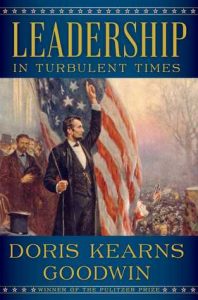
I begin by writing my favorite lines of Theodore Roosevelt and Lyndon Johnson:
Leadership success does not necessarily be obtained by attaching oneself to a series of titled positions. Leadership had to be earned; it is not something to be granted by rank or title.
The way you get ahead in today’s world, you get close to those that are the heads of things. It’s no longer easy to get the help you need when you are no longer on the top of the world.
This book chronicles the leadership of four luminaries who served as the major pillars of America that is today: Abraham Lincoln, Theodore Roosevelt, Franklin Roosevelt, and Lyndon Johnson. Amongst these towering figures, the travails Theodore Roosevelt had undergone before he finally became the youngest President of America is both electrocuting and electrifying. Despite being born in a privileged family, T. Roosevelt believed, not anything like many others, that privilege can stunt ambition, just as the lack of privilege can fire ambition. “The light has gone out of my life,” writes T. Roosevelt, after the consecutive demises,of his both wife and mother, on the same day — it was a grim and evil fate — which made him a full-blown stoic fatalist. After his unfortunate turn in the political affairs, he — discovered that the light at the end of the tunnel is the headlight of an oncoming train — was debarred from the party. Unlike candlelight that had been snuffed out, he retreated himself into the lap of nature with a deadend heart and fear of intimacy, for two years, only to become a genuine luminary, guide and leader. This book, although, recounts gripping anecdotes of the other three American leaders, who are like rocks in a polishing cylinder brought to shine by tumbling contact with a wide variety of people, I felt disconnected when the book focussed on politiking and the political minutiae of America — as never have I had an interest in American politics as much I have never had an interest with Russian politics. However, these four men, [maybe I should add ‘myself’ into the list after a few years, who knows, I am as fatalistic as T. Roosevelt ;-)] are exemplaries of proving that great characters are formed not in the still calm of life, or the repose of a pacific station — they are formed in contending with difficulties. Great necessities call out great virtues. “The best way to define a man’s character would be to seek out the particular mental or moral attitude in which, when it came upon him, he felt himself most deeply and intensely alive and active. At such moments, there is a voice inside which speaks and says, ‘This is the real me!’ “